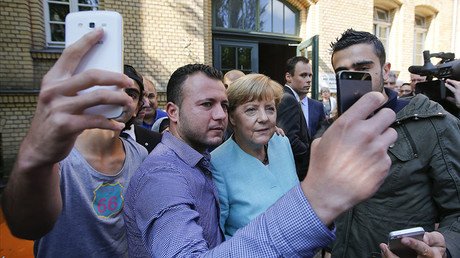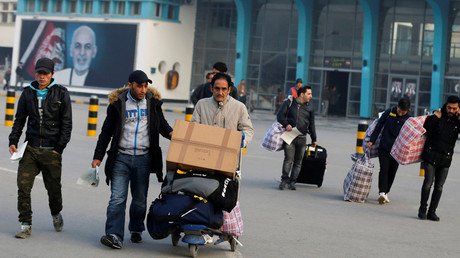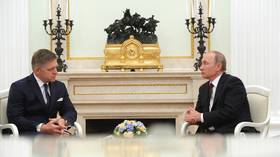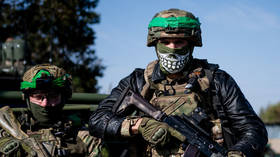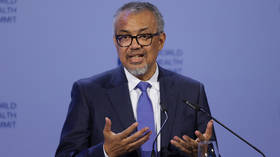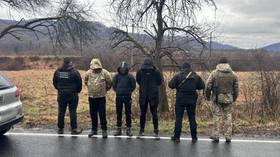Merkel agrees to limit number of refugees entering Germany
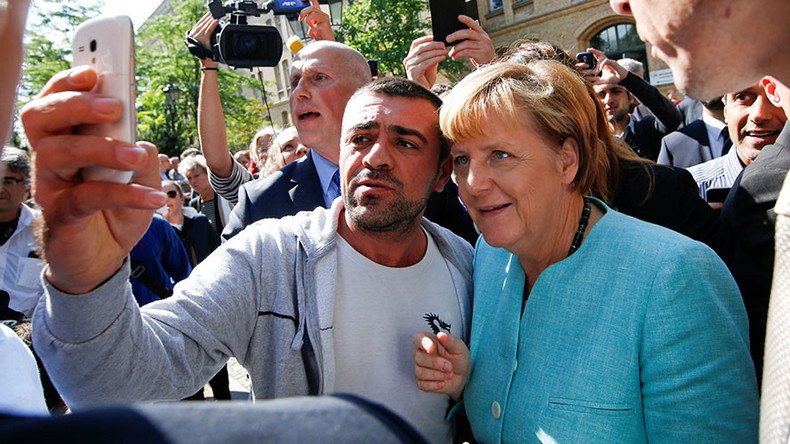
After hours of discussion, Angela Merkel’s CDU and its Bavarian CSU sister party have made a breakthrough in the fight over the refugee ceiling issue, agreeing to cap Germany’s intake of asylum seekers at 200,000 a year.
“We want to achieve a total number of people taken in for humanitarian reasons (refugees and asylum seekers, those entitled to subsidiary protection, family members, relocation and resettlement minus deportations and voluntary departures of future refugees) that does not exceed 200,000 people a year,” the agreement stated, according to Reuters.
This would relate to the humanitarian inflow, in other words asylum seekers and refugees; migrant workers would not be affected by the scheme. In exceptional circumstances, that number could be increased or lowered by the Bundestag, Der Spiegel reported, citing a draft paper.
Since 2015, when the German Chancellor announced her decision to let in hundreds of thousands of refugees, around 1 million asylum-seekers have arrived in Germany, putting a strain on its social welfare system and sparking a rise in anti-migrant sentiment, as well as opening deep rifts within German society.
Merkel is now expected to start coalition talks next week.
With 33 percent of the votes, her CDU/CSU alliance won a plurality in the German parliamentary elections late last month. However, for both the CDU/CSU and their closest rival, the Social Democratic Party (SPD), which gained 20.5 percent of the vote, the results were the worst in over 60 years. Meanwhile, the anti-immigrant AfD – which secured 12.6 percent of the vote – came in third and will enter the Bundestag for the first time.
READ MORE: Merkel ‘to blame for AfD existence’ & will be challenged by new reality – analysts to RT
Public support for the AfD grew amid mounting anti-refugee sentiment following Merkel’s open-door policy.
“The growing Islamization of Germany poses an urgent challenge for its public and state order; cultural identity and internal peace,” AfD co-founder Alexander Gauland said during a press conference held less than a week before the German parliamentary elections.
Throughout its election campaign, the AfD was accused of racism, Nazism, Islamophobia and anti-Semitism.
Ahead of the federal election, Angela Merkel once again defended her open-door policy by denying she made any mistakes over the course of the refugee crisis.
“I’d make all the important decisions of 2015 the same way again,” Merkel told the German Die Welt in late August, adding that she has no regrets about her refugee stance.
“I made my decision based on what I thought was right from a political and humanitarian standpoint,” she said, and described the 2015 refugee crisis as one of “extraordinary situations” that just “happen every once in a while in a country’s history.”
Germany’s geographic location together with the Dublin agreement (regulating asylum procedures in the EU) has left most refugees stranded in the EU’s coastal states, such as Greece and Italy. Despite this, Germany has been receiving thousands of asylum-seekers annually. As the migrant influx from the Middle East and North Africa gained momentum, the German chancellor announced a “humanitarian move,” opening Germany’s borders to migrants in August 2015.
The mass influx of refugees had a major impact on Germany’s national security situation. In August 2016, the head of the Bavarian department of the Domestic Intelligence Agency (BfV), Manfred Hauser warned that “hit squads” linked to Islamic State (IS, formerly ISIS/ISIL) might have infiltrated Germany posing as refugees.
The deadliest incident occurred on December 19 2016, when a rejected asylum-seeker plowed a truck into a Berlin Christmas market, leaving 12 people dead and dozens injured. The assailant, a Tunisian man named Anis Amri who had pledged allegiance to IS, had previously been on the radar of the police. Amri managed to flee the scene and reach Italy, where he was gunned down by police.
